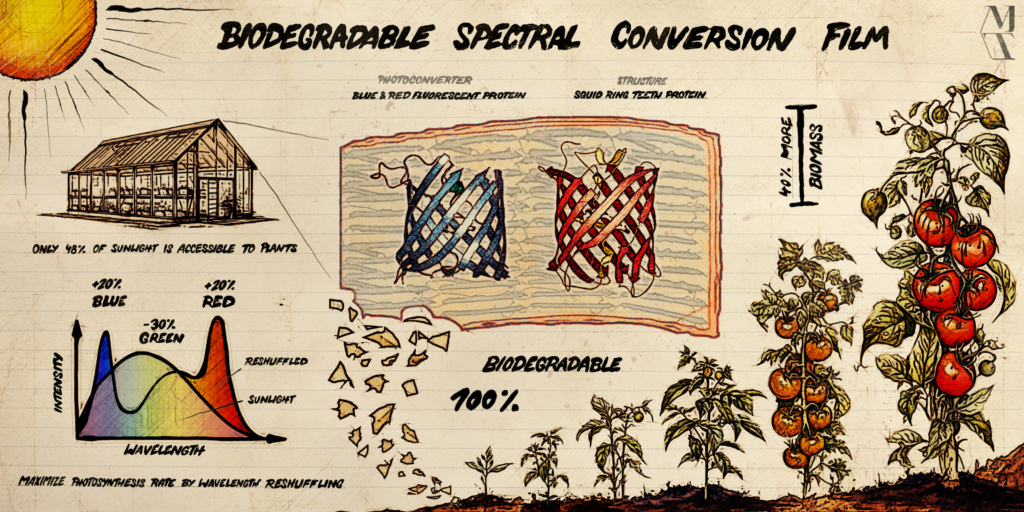
Mimotype has developed novel material systems for bio-inspired organic semiconductor technology, enabling light generation modeled after nature. Claudio and Danilo Flores have created hydrogel-based light-emitting diodes for medical use in the wearable sector, high-end lighting experiences for the automotive sector, aerospace, and shipping industries, as well as innovative textile fibers.
You founded the nanotechnology startup Mimotype in 2021. At what point in your studies/research did the idea of starting your own company arise, and what influenced your decision?
Mimotype is not a “spin-out” but a “spin-in.” Coming from the private sector, we merged into the German high-tech landscape in a sort of reverse merger. Organizationally, we are an agile speedboat; nonetheless, due to leasing agreements with universities and research institutions, we have access to the latest machines and manufacturing facilities.
We have been working as innovation managers in the field of bio-inspired high-performance materials since 2017. Based on Claudio’s research in theoretical biology, we developed an approach for rapid prototyping of biomaterials founded on the core idea of convergent evolution. The application of this proprietary technology discovery principle led Mimotype into the field of organic electronics. Danilo knew even before completing his university law degree that he wanted to pursue an entrepreneurial career. Claudio began his PhD but decided after a year to put it on hold and dedicate his life to bio-entrepreneurship. Together, we shape and realize our own understanding of organic technology, aesthetics, and beneficial application areas.
Now you aim to achieve great things in food production. What is this all about?
We are expanding our groundbreaking work in bio-inspired organic semiconductor technology to address critical challenges in global food production. With global food demand expected to rise by 56% by 2050 and extreme weather events threatening supply security, innovative solutions are needed.
Our focus is on greenhouse cultivation, a sector where artificial LED lighting is currently essential for promoting plant growth. However, this is also energy-intensive and reliant on fossil energy sources, contributing to excessive emissions and creating volatile cost structures for producers.
Mimotype’s solution involves the use of biodegradable photoconversion films. These films use genetically modified fluorescent proteins derived from jellyfish to convert unproductive parts of sunlight, such as ultraviolet and green wavelengths, into photosynthetically active red and blue wavelengths. This process effectively harnesses unused solar energy for plant growth without requiring additional energy input.
By covering greenhouse walls with these biodegradable and biocompatible films, we can improve plant growth in various climates while significantly reducing the dependency on artificial lighting and energy consumption. This not only increases the efficiency and sustainability of food production in greenhouses but also helps secure our food systems against future uncertainties.

The potential applications seem very diverse and almost limitless. Which sectors do you envision for the future?
Besides greenhouse cultivation, we see great potential in several other sectors, particularly in solar cell technology and the medical field.
Firstly, our bio-inspired materials could be used in solar cell technology to enhance efficiency and promote sustainable energy production. Solar cells are less efficient at converting light to energy at certain wavelengths. By photoconverting incoming light into wavelengths that match the optimal efficiency of solar cells, our technology could significantly improve their performance.
In the medical field, we envision advancing optogenetics in neurotechnology and research. This could lead to breakthroughs in understanding neurological disorders. Additionally, our biocompatible light sources could impact wearable medical devices, improving patient care and overall therapy outcomes.
You founded the company together as brothers. What significance does your familial relationship have for the company?
We are probably the most resilient team in the world. It’s a great feeling to work in a budding family business. Of course, there are conflicts, but we learn to handle and de-escalate them. It’s the best school for applied psychology one could wish for. We couldn’t imagine having any other co-founder and wouldn’t want it any other way. I recently read that in crystallography, the concept of twin crystals is very important. I often think about how our joint growth relates to this.
Do you have any advice for researchers who are still considering starting a technology startup?
Don’t follow trends and hypes; think critically and don’t go with the flow. If you are convinced of your vision and technology and feasibility are aligned, pursue your ideas even if few others are researching and developing in that field. These niches often incubate true breakthrough technologies. Don’t let investors, VCs, and startup coaches explain too much to you, as they usually have never founded a company themselves. Study the great scientific entrepreneurs of the past who displayed true boldness and changed the world. Even in the interconnected, digital age, nothing beats persistence, conviction, authenticity, and tenacity.
More about Mimotype
